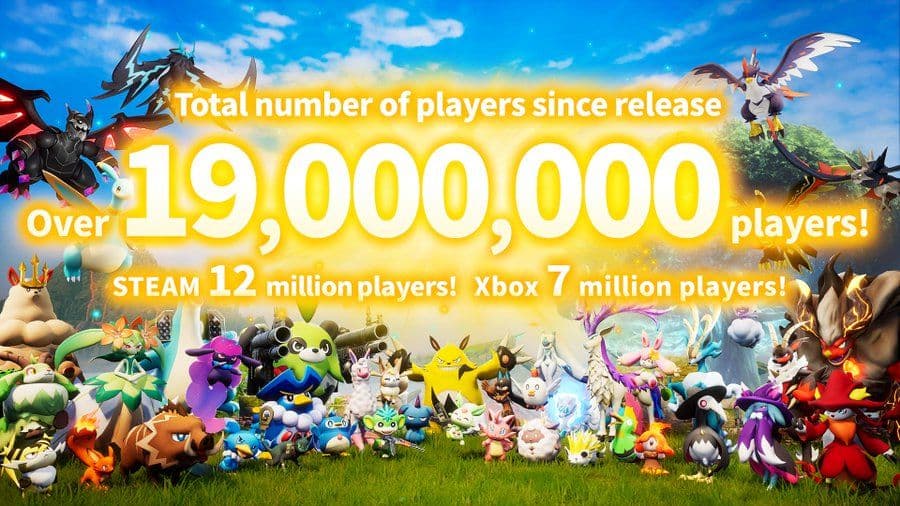Palworld, developed by Pocketpair, is an innovative multiplayer adventure RPG that has quickly gained popularity, with over 2 million sales within the first 24 hours of its release. This game stands out for its unique blend of multiplayer survival-crafting and adventure RPG elements, diverging from the standard Pokémon-inspired games. It's described as "Pokémon with guns," a tagline that has resonated universally and contributed to its surge in popularity.
The remarkable success of Palworld offers critical lessons for the web3 gaming industry. By focusing on innovative gameplay, effective marketing, community engagement, and sustainable monetization models, web3 games can replicate this success, leaving one to wonder, "Why haven't web3 games already achieved this?"
Innovative Gameplay
Palworld's triumph lies in its innovative blend of survivalnand RPG elements. This innovation is a stark contrast to the web3 gaming space, where there's a tendency to replicate existing successful formulas. In game design, a concept that frequently surfaces is the "80% copy, 20% unique" principle. This principle suggests that many successful games often borrow elements or mechanics from existing titles, but they also introduce a distinctive twist or feature that sets them apart. Palworld, as an example of this principle in action, has achieved remarkable success by adhering to it.
According to Newzoo's Global Games Market Report, innovative gameplay is a key driver in a game's success, contributing to a global games market that reached $159.3 billion in 2020. Players often gravitate towards games that feel familiar and comfortable, where they can understand the basic mechanics quickly. However, purely replicating existing formulas can lead to stagnation and a lack of innovation in the industry.

Palworld's triumph lies in its ability to strike a balance between the familiar and the innovative. It incorporates well-known survival and RPG elements that players are accustomed to, making it accessible and easy to pick up for many gamers. Yet, it distinguishes itself with a unique twist: the integration of creature-catching mechanics and the utilization of these creatures in various aspects of gameplay.
Effective Marketing
Web3 games often focus on the integration of blockchain technology as their main selling point, but Palworld's success underlines the importance of original gameplay. Web3 developers should prioritize unique and engaging gameplay experiences that stand out, rather than relying solely on blockchain features to carry them. Blockchain alone adds nothing to gaming, and only becomes of any value once it is put into good use to actually enhance the player’s experience.
This brings us to Palworld's marketing strategy, encapsulated in the tagline "Pokémon with guns," demonstrates the effectiveness of clear and memorable marketing. This approach contrasts with many web3 games, which often get bogged down in technical jargon, complex narratives, or even simply token talk.

A study by the Aberdeen Group found that companies with strong brand messaging see 23% more revenue. Web3 games need to simplify their message, making it relatable and easy to grasp for the average gamer. This approach can broaden their appeal and attract a more diverse player base. Find your strongest selling point, create a punchline that sticks, and amplify that.
Unfortunately, countless web3 games tend to sell the idea that their game is going to become a franchise with comic books, animated series, movies, and their in-game characters are going to make it onto Hollywood. This doesn’t happen overnight nor does it happen by simply having blockchain as the base layer of your game. The only way to even be on the right path to achieving any success in that field is by creating relevant content, and building a game that drives organic content creation by its pure form of entertaining gameplay.
Community Engagement
The mention of content creation highlights how Palworld's success is partly due to its strong community engagement and multiplayer capabilities. The game supports up to 32 players, fostering a sense of community and cooperative play. This is particularly relevant for web3 games, given the decentralized and community-driven nature of blockchain technology. A report by the Entertainment Software Association highlighted that 55% of gamers say video games help them stay connected with friends. Web3 games can leverage this by emphasizing community-driven features and multiplayer experiences, enhancing player engagement and retention.
Although web3 games oversell the idea of “community”, it often means nothing more than an army of people who will flood your social media posts telling you to check out their game and how great it is when unfortunately in fact, it isn’t. Once web3 games drop the concept of community being KOLs, bag holders trying to sell into each other, and social media vanity metrics, then they can focus on equating community to actual players hopping on daily to play.
Sustainable Monetization Models
Unlike many web3 games that focus on tokenization and NFTs, Palworld adopts a one-time purchase model with no in-game transactions. This approach challenges the often-criticized monetization models in web3 games and builds trust with players. A survey by Game Developer Conference State of the Game Industry 2021 revealed that 58% of game developers believe NFTs and blockchain in games are a "fad." Sustainable monetization models, as demonstrated by Palworld, can lead to a more stable and loyal player base, ensuring long-term success.
Game Development Budgets vs. Web3 Fundraising

Traditional projects like Palworld often operate within defined budgets, focusing resources on gameplay, design, and player experience to ensure a polished final product. This contrasts sharply with the web3 gaming sector, where substantial funds are raised through mechanisms like IDOs and NFT sales, yet the allocation of these resources doesn't always prioritize the fundamental aspects of game development.
The result is a landscape where, despite the significant financial backing, many web3 games struggle to reach fruition or fail to deliver the quality and engagement seen in successful traditional games, leading to a considerable amount of wasted investment and disillusionment within the gaming community. The recently updated Big Blockchain Game List for January 2024 reported 31% of the total 1,318 games have been discontinued, amounting to 407 titles due to reasons such as funding challenges and market conditions.

The success of Palworld, achieved through efficient budget management and a focus on innovative gameplay, highlights a critical lesson for the web3 gaming industry: the importance of prioritizing game quality and player experience over the allure of blockchain technology's novelty. The disparity between the efficient use of resources in traditional game development and the often inefficient expenditure in web3 projects underscores a need for a shift in focus. By adopting a more balanced approach that values gameplay innovation and quality equally with technological advancement, web3 games can better harness their substantial funding to create experiences that captivate and endure in the competitive gaming market.
Final Thoughts
The success of Palworld in the gaming market is a testament to the power of innovation, effective marketing, community engagement, and sustainable monetization. These elements are crucial for the success of any game, including those in the web3 space. The question then arises: "Why can't web3 games do this already?" The answer lies in shifting focus from the novelty of blockchain technology to the fundamentals of good game design and player experience. By emulating Palworld's approach, web3 games can not only capture the imagination of a broader audience but also establish themselves as mainstays in the competitive gaming industry.





